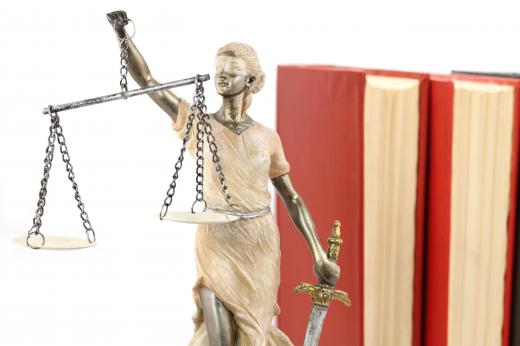The penalties for illegal downloading vary by country, but the gravest penalties for illegal downloading are usually fines. It is possible to serve time in a prison for downloading a film, music, or other item illegally, but most areas recognize that this punishment does not fit the crime. In most cases, a very high monetary fine will be imposed, but no jail time will be demanded. Even so, when Internet piracy can possibly result in jail time, it is very important to obey the law even if the chances of being prosecuted are minimal. Fines, where they exist, are often extremely inflated and can reach more than a hundred thousand times the purchase price of the individual song or film.
In some areas, a person can be sent to prison for illegal downloading. The length of the sentence is usually shorter for a person who only downloads and does not upload any files. As people who download files typically download many files, it is relatively uncommon to see prison sentences related to the number of files downloaded. To do so could result in people serving life sentences for music downloads.

Fines are by far the most common penalty for Internet piracy. The fines someone might be expected to pay differ depending on the area where the crime occurred. Even people who might otherwise be treated leniently, such as children, are usually not immune from penalties for this type of illegal activity. When children cannot be prosecuted, media companies usually go after parents.

The precise amount of the fine is often many times the purchase price of the individual file. Fines for this type of crime are usually considered different than fines someone might pay for stealing a physical CD from a store and are often much higher than the fine for theft. It is sometimes left to a jury to decide how much the accused criminal must pay per file. People who are prosecuted for file sharing are often charged with startlingly high fines because each individual file can be added on to the total fine.

Some areas do not have penalties for illegal downloading, but these areas usually have restrictions on the type of downloading permissible. For example, some areas allow downloading for personal use but do not allow uploading of files for sharing. Other areas allow files to be shared in any way at all without penalties, although money may be collected in other ways to compensate copyright holders. The penalties for illegal downloading can be quite serious, so it is very important to understand the local laws.
